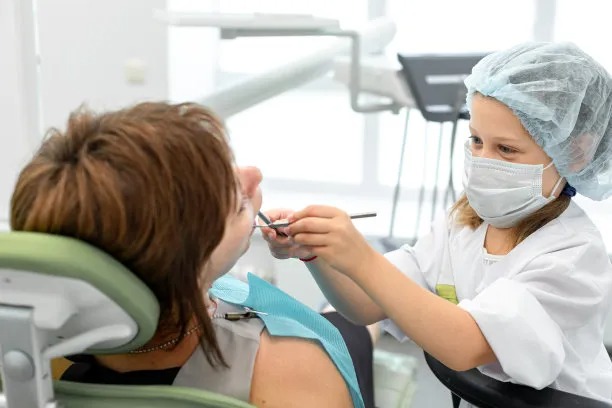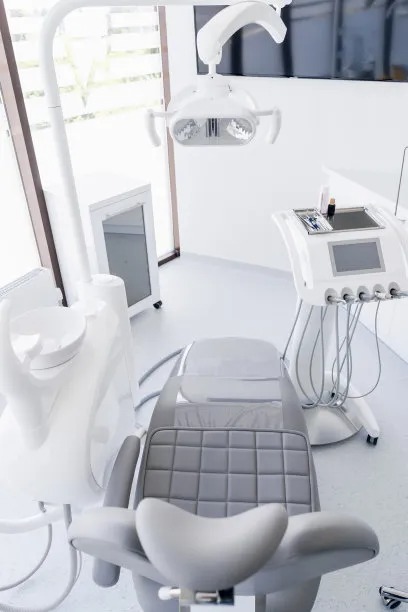Summary: The process of extracting a tooth can evoke a myriad of emotions ranging from anxiety to relief. This journey encompasses not only the physical pain associated with the procedure but also the emotional aftermath that affects ones confidence and overall oral health. The experience of having a tooth extracted often leads to feelings of vulnerability, sparking concerns about appearance and social interaction. Additionally, the impact on oral health can extend beyond the immediate discomfort, influencing future dental habits and the overall well-being of an individual. In this article, we will delve into four key aspects of this emotional journey: the initial anxiety and fears, the recovery process, the long-term impacts on oral health, and the effects on personal confidence.
1. Initial Anxiety and Fears Before Extraction

For many individuals, the thought of undergoing a tooth extraction can incite significant anxiety. This fear is often rooted in the anticipation of pain and the unknown aspects of the procedure. The visceral response to the idea of a dental drill can lead to sleepless nights and heightened stress levels as the appointment date looms closer. This anxiety is further exacerbated by anxiety about the dentists office, which, for some, symbolizes fear itself.
Moreover, the fear of judgment can also become a pressing concern. Many individuals worry about the stigma associated with needing dental work, leading to self-consciousness. They may wonder if others will view them negatively or see them as neglectful of their dental health. This pressure can exacerbate feelings of vulnerability, making the lead-up to the extraction particularly daunting.
2. The Recovery Process After Extraction
The recovery phase following a tooth extraction often presents its own emotional challenges. Initially, pain management is a primary concern; patients may rely on medications to cope with discomfort, which can lead to feelings of helplessness. This period requires patients to adjust their daily routines, which can bring about frustration and impatience.
In addition to physical discomfort, the recovery phase can usher in a wave of emotions, from relief to sadness. Many individuals may reflect on the lost tooth and its implications for their appearance and daily life. Social situations that were once comfortable may become daunting, as individuals may feel self-conscious about speaking or eating.
However, there is also an aspect of relief when the extraction alleviates previously existing pain or dental issues. This duality of emotion during recovery underscores the complexity of the journey, wherein individuals may feel a mixture of grief for the lost tooth while simultaneously appreciating the relief from pain.
3. Long-Term Impacts on Oral Health
The implications of a tooth extraction extend beyond the physical discomfort and emotional experiences; they can have long-term effects on ones oral health. Missing a tooth can lead to complications, such as shifting teeth and bite misalignment, which may result in further dental issues down the line. The body adapts to changes over time, and improper alignment can lead to uneven wear on remaining teeth.
Moreover, an extracted tooth may necessitate additional dental treatments, such as implants or bridges, to restore function and aesthetics. This process can involve significant time, financial investment, and additional emotional stress associated with ongoing dental care.
Conversely, there can also be positive outcomes if the extraction was necessary to remove disease or decay. Patients may live healthier lives free from the risks associated with problematic teeth, leading to an improved overall view of oral health care and more proactive dental habits.
4. Effects on Personal Confidence and Social Interaction
The emotional aftermath of tooth extraction can significantly influence personal confidence and social interaction. Many people associate their smiles with their overall identity, and a missing tooth can lead to a fear of judgment from others. This concern may prompt individuals to withdraw from social situations, impacting relationships and engagement with the community.
On the other hand, addressing the underlying dental issues often leads to a newfound appreciation for oral health, prompting individuals to prioritize their dental hygiene post-recovery. This proactive approach can lead to a boost in confidence as individuals move forward and embrace their smiles.
Ultimately, while the journey of extracting a tooth is fraught with emotions, it can pave the way for personal growth and increased awareness of ones health, thus fostering resilience and self-acceptance over time.
Summary:
The emotional journey of extracting a tooth encompasses a range of feelings, from anxiety and fear before the procedure to the emotional and physical struggles of recovery. Moreover, it can have significant long-term impacts on oral health and personal confidence, highlighting the importance of addressing both the emotional and physical aspects of dental care.
This article is compiled by Vickong Dental and the content is for reference only.
Vickong Dental
Vickong Dental is a large medical group established in Hong Kong in 2008 by professors from well-known medical universities in Guangdong and Hong Kong, as well as medical doctors from key national '985' universities (including Master's supervisors and senior professors). The chain of branches brings together expert dentists with PhDs and Master's degrees from Hong Kong and Mainland China, committed to providing high-quality dental treatment.
"Vickong Dental Practices the University Motto of 'Healing and Serving Society,' with a Stable Operation for Sixteen Years. It Has Been honored with Hong Kong Enterprise Leaders's Choice,' and is a Global Trusted Implant Center for the Nobel Implant System. Recommended by Hong Kong Metro Broadcast and Guangdong Television, it Serves Customers from Over Thirty Countries and Regions, Gaining the Trust and Favor of Citizens from the Guangdong-Hong Kong-Macau Greater Bay Area and Surrounding Cities.

Thousands of customers' unanimous praise
The most recognized and highly recommended dental service by customers in the Guangdong-Hong Kong-Macau Greater Bay Area
We Ensure You Receive Detailed Care and Attention Here
Hong Kong standards, Shenzhen prices, Your Trusted English-speaking dentists

Vickong Dental Medical-Grade Instrument Disinfection Process
Vickong Dental Medical-Grade Instrument Disinfection Process

Vickong Dental Chain: A Warm and Comfortable Environment for Treatment






Appointment Hours

Q&A
Why choose Vickong Dental?
Vickong Dental practices the university motto 「Medicine to Benefit Society」, with each branch bringing together highly qualified dentists with doctoral and master’s degrees from Hong Kong and the Mainland, and has maintained seventeen years of steady operation。Recipient of 「2024 Hong Kong Enterprise Leaders Brand」, 「2025 Hong Kong Enterprise Leaders Brand」, a Nobel Biocare Global Trusted Implant Center, and a brand recommended by Metro Radio Hong Kong and Guangdong TV。
To date, we have served customers from more than thirty countries and regions,earning exceptionally high word-of-mouth recognition and trusted recommendations from residents across the Guangdong-Hong Kong-Macao Greater Bay Area and surrounding cities
We have eight major branches in Zhuhai、Shenzhen,and a consultation and service assurance center in Hong Kong,so you can book a free consultation at any time for any questions,which is very reassuring.
If I do not accept the quotation after the CT scan, will I be charged??
No! As long as the actual treatment has not started, you will not be charged any fees.
Will there be any additional charges during the treatment process?
No, there won’t be any additional charges. Before treatment begins, we will clearly explain the treatment plan and its corresponding fees. Only after the patient agrees and signs the consent form will we proceed with the dental service.
Can I pay in Hong Kong dollars?
Yes. Vickong Dental accepts payment in Hong Kong dollars. The amount will be converted based on the exchange rate of the day, and the applicable rate will be clearly communicated to you in advance.
Can I reschedule my appointment at any time?
Yes. Please contact us via **WeChat** or **WhatsApp** as early as possible, providing your original appointment time and details, along with your preferred new date and time slot for rescheduling.













